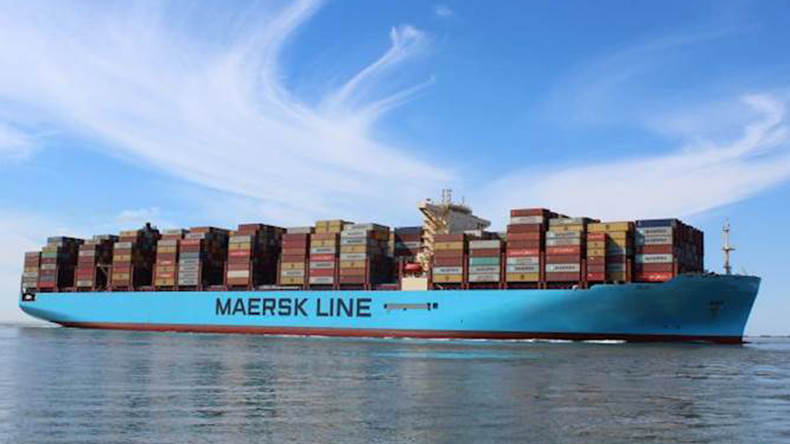According to Lloyd’s List, Maersk has suspended two of its US-flagged container ships from calling at Chinese ports after China’s special port fees took effect on October 14.

Based on the announcement issued by this Danish shipping giant to its customers, the 6,435 TEU Potomac Express (IMO: 9349526) will skip the Port of Ningbo and instead discharge cargo at the Port of Busan, South Korea. Transshipment cargo will be transferred locally to other vessels.
The Maersk Luz (IMO: 9526904) will carry cargo originally scheduled for export from Ningbo to the United States and will connect with the Potomac Express in Gwangyang on October 24.
Meanwhile, the 6,200 TEU Maersk Kinloss (IMO: 9333022) will also cease calling at the Port of Ningbo. Its import cargo will be unloaded at ports in South Korea and transshipped via other vessels within the Maersk network to Ningbo and other destinations.
The export cargo originally scheduled to be shipped to the United States via Ningbo will now be rerouted to South Korea before transiting to the United States. Both vessels bypassing China operate on Maersk’s Transpacific route TP7 and were constructed in South Korea.
Maersk stated: “We will adjust the port sequence of the TP7 service to ensure your supply chain operates as smoothly as possible.”
In addition to vessels flying the U.S. flag and those constructed in the United States, the scope of Chinese port fee collection also includes any vessel owned or operated by an entity in which a U.S. individual or institution directly or indirectly holds 25% or more of the equity, voting rights, or board seats.
Vessels constructed by Chinese shipyards are exempt.
According to estimates by shipping data analytics firm Linerlytica, carriers may incur up to $2.3 billion in port fees during their first year of calling at Chinese ports. This amount represents a decrease from the previous $3.9 billion figure, as Chinese-built vessels were previously exempt from these charges. This amount is nearly double what Linerlytica estimates Chinese shipping companies would need to pay when calling at U.S. ports.
China’s special port fee scope has been expanded to cover vessels chartered by non-operating shipowners with over 25% U.S. equity. Consequently, companies such as Seaspan, SFL, Navios, Costamare, and Global Ship Lease are also required to pay the port fees. Against this backdrop, other shipping companies are also expected to make adjustments to reduce their risk exposure.
Linerlytica estimates that Maersk’s port fees in China will approach $400 million, while Mediterranean Shipping Company (MSC) will incur slightly lower costs. U.S.-listed Zim is projected to bear over $600 million in fees, the highest among major shipping companies. The average voyage cost per TEU for affected ships will increase by approximately $300.
Due to the late notice received last Friday, major shipping lines had limited time to respond, and freight rates are expected to rise in the short term.


